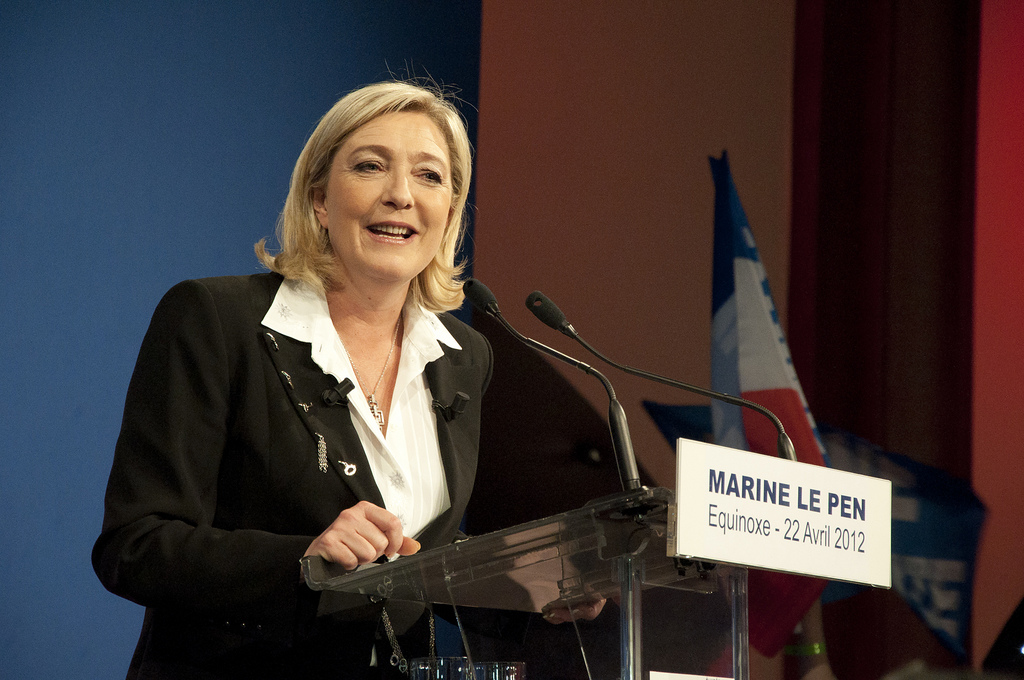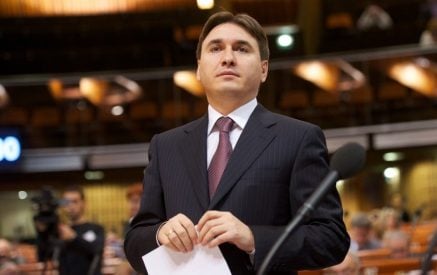France’s far-right presidential candidate Marine Le Pen called on voters across Europe to “wake up” and follow the example of US and British voters. The Guardian reports.
Speaking at an unprecedented meeting in Germany of Europe’s rightwing populist parties, she said Brexit would unleash an unstoppable wave of “all the dominos of Europe”. And after Brexit, she added, before an audience of several hundred, the election of Donald Trump was a “second coup”.
“His position on Europe is clear. He does not support a system of the oppression of peoples,” she said, to enthusiastic applause. “2016 was the year the Anglo-Saxon world woke up. I am certain 2017 will be the year when the people of continental Europe wake up.”
The meeting, in the central German city of Koblenz, was organised by Marcus Pretzell of Germany’s Alternative für Deutschland (AfD) party, under the slogan “Freedom for Europe”.
Read also
Le Pen condemned Angela Merkel’s refugee policy as a catastrophe, saying the German chancellor had “let hundreds of thousands of refugees into the country against the will of the German people”. This mirrored remarks made by Trump last Monday.
The Koblenz meeting was intended to strengthen connections between Europe’s populist parties – including Le Pen’s Front National, the AfD, Italy’s Northern League, and the Freedom Party (PVV) in the Netherlands.
Geert Wilders, leader of the PVV, had promoted the meeting on his Twitter feed, using the hashtag #WeWillMakeOurCountriesGreatAgain – a nod to Trump’s promise to “make America great again”.
The rightwing parties from across the continent have previously been cautious about meeting in public, with cooperation limited by their individual nationalist policies. Often, if cross-border meetings did take place, they were held in private or kept very low-key.
The gathering on Saturday was the first time AfD leader Frauke Petry and Le Pen had appeared together in public. The two met for dinner last summer, but when news of the meeting was leaked in the French media, Le Pen denied it had taken place.
The fledgling AfD, formed just four years ago, is hoping to secure 14% of votes in Germany’s federal elections in September, and enter the Bundestag for the first time. It is, by its own admission, deploying a technique of “targeted provocation”, in which a party member creates headlines with a comment that extends beyond what has previously been considered socially acceptable. The party leadership condemns the remarks, but they are absorbed into the common discourse, and tolerated by the leadership, who half-heartedly distance themselves from the remarks.
The strategy was most recently used by Björn Höcke, a regional leader, a few days ago, who earned warm approval from the AfD youth wing by suggesting Germany had been strangled by the way its people were forced to atone for the country’s Nazi past, and called for a “180-degree turn”. The comments were timed to coincide with the 75th anniversary of the 1942 Wannsee Conference, in which the Nazis formed the plan that led to the Holocaust.
For Le Pen, appearing to distance herself from the extremist positions of her father, Jean Marie Le Pen, the previous leader of the party, has been vital ahead of the presidential election.
But what has clearly changed, and brought the other European leaders out of the shadows to present a common front, is the election of Trump. Le Pen, Petry, Wilders and Matteo Salvini of the Northern League have all expressed admiration for the new US president.
On Friday, Petry sent Trump a telegram in which she congratulated him on behalf of the AfD: “May your hopes as a person be fulfilled and may you achieve your goals as President of the USA,” she enthused. Petry told Trump that she was encouraged by the statements he had made, and added: “We as Germans and Europeans will follow your foreign policy position with hope, because it is refreshingly different from the course of the past decades.”
Last Monday, in a joint-interview with the Times and German tabloid Bild, Trump said the EU had become a “vehicle for Germany”, and predicted that more EU members would vote to leave.
Leading German media outlets were “banned” from reporting from the Koblenz meeting, having been told by its organiser, the Europe of Nations and Freedom (ENF) group in the European parliament, that they had “failed to meet journalistic standards in past reporting”.
German state broadcaster ARD condemned the media ban, calling it a “massive encroachment” on the freedom to report.
ARD’s programme director, Volker Herres, said: “It is a loss for our audience that we won’t be able to report on the meeting of rightwing populist parties in Europe. This gathering is of great importance for the future political course of this movement.”
Wilders, who is ahead in all leading opinion polls as the Dutch prepare for national elections in March, told the Koblenz meeting to cheers: “Yesterday a free America, today Koblenz, and tomorrow, a new Europe”. The loudest applause came when he told the crowds: “Europe needs Frauke, not Angela.”
Protesters gathered outside the venue included prominent politicians Sigmar Gabriel, leader of Germany’s Social Democrats, and Jean Asselborn, Luxembourg’s foreign minister. Around a thousand police officers were on duty.
Bild called the meeting “first and foremost a show, not a congress, for pictures that the populists will use as election advertising for their political battles at home”.
Last Friday evening, ahead of the congress, the politicians gathered with 100 guests for a dinner in the vaulted cellar of a castle, Burg Weisenau in the nearby city of Mainz.























































